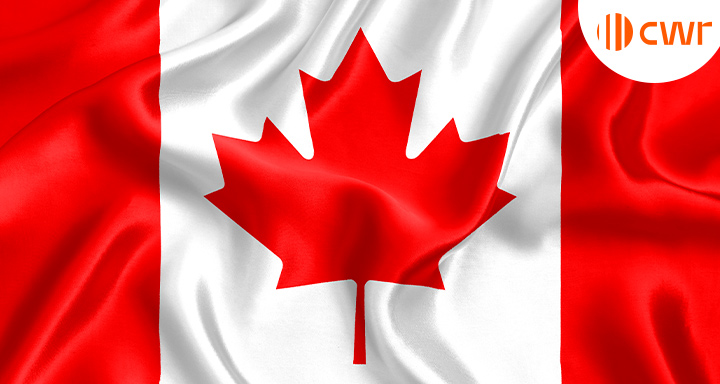All About Canada Permanent Residence
Canada permanent residence is given to an individual who has obtained permanent resident status by Canadian immigrating.
A permanent resident enjoys many benefits as a Canadian citizen. However, unlike Canadian citizens, permanent inhabitants should preserve their status by fulfilling certain requirements, such as residency obligation.
What Is Canada Permanent Residence?
A permanent inhabitant has a permanent resident status which they achieve by immigrating to Canada. However, they aren’t considered Canadian citizens because they are residents of different nations.
However, it is vital to note that a person in Canada who is temporarily a foreign worker or student cannot be considered a permanent resident.
Refugees resettled from overseas become permanent residents through government-assisted refugee programs or sponsorship programs.
Someone who makes a refugee claim in the nation does not become a permanent resident at that time. Thus, in order to become one, the Immigration & Refugee Board must first approve their claims. Further, they must apply for & get permanent resident status.
Benefits Of Canada Permanent Residence
Canada is known as the paradise for immigrants. Every year the nation admits a lot of newcomers.
Its welcoming nature, dynamic communities, work opportunities, and immigration process has made it an enticing destination for individuals across the globe.
Well, here are the top benefits of Canada permanent residence. Take a look!
-
The Ability To Live & Work In Canada
Canadian permanent residents can legally reside & work anywhere in Canada. If a new inhabitant starts off in Montreal but gets a better job in Toronto, they will have the right to move.Permanent residents aren’t tied to a specific province or employer.
Additionally, Canadian PRs also have the ability to leave & enter the borders of Canada using a permanent residency card or permanent resident travel documents.
-
Access To Universal Healthcare & Social Services
Healthcare in Canada is universal, implying that everyone has access to free medical care. Once an individual becomes a permanent inhabitant, they have access to Canada’s healthcare & social services.
Well, you must note that Canada’s healthcare & social services are of top quality. Thus, once you become a permanent inhabitant, you can have free healthcare as well as social services.
-
Family Sponsorship
Family sponsorship is a unique strategy in Canadian immigration.
Permanent inhabitants can apply to sponsor their spouse, conjugal partners, common-law partners, dependent children, etc., to join them in Canada.
Moreover, if an applicant immigrates via Express Entry, they can include their family on the initial application so they don’t have to sponsor them later!
-
Free Education For Children
Children of Canadian permanent residents can study free of cost up until secondary school.
Upon graduating, post-secondary school is cheaper for permanent residents as compared to international students. Thus, permanent inhabitants don’t have to worry about expenses for education. In the initial phases, it’s free & then the costs aren’t much for further education!
-
Transitioning To Canadian Citizenship
Becoming a permanent resident is the initial step to becoming a Canadian citizen. After living in Canada for three out of five years, permanent inhabitants become eligible to become Canadian citizens.
Once a permanent resident transitions to a citizen, they can vote as well as apply for a Canadian passport. In addition, they would no longer be required to renew their status in the country.
-
Protected Rights
The rights of permanent inhabitants are protected under Canadian law along with the Canadian Charter of Rights & Freedoms.
Canada Permanent Residence Cards
Once a person becomes a permanent inhabitant, they can apply for Canadian permanent residence cards. This card demonstrates a person’s permanent residence status in Canada. In addition, PRs can use this card to travel in & out of the country.
Permanent Residence Card Renewal
Most permanent resident cards are valid for up to five years, though occasionally, these cards are only valid for one year. The Canadian government facilitates permanent inhabitants to keep track of their cessation date & apply for renewing their Canadian permanent resident card within six months of the expiration of the card.
Permanent Resident Travel Document (PRTD)
Suppose a permanent resident is outside the nation & wishes to arrive in Canada. In that case, they can apply for a permanent resident travel document if they do not have a valid permanent resident card.
The PRTD, i.e., permanent resident travel document, is valid for a single entry to Canada, thus enabling permanent inhabitants to enter the nation before applying for a PR card or PR card renewal.
Canadian Permanent Residency Requirements
A person must meet a residency obligation to maintain permanent resident status in Canada.
Now you must be wondering what is a resident obligation. Well, a residency obligation is defined as a person’s physical presence inside the nation for a specific amount of time.
Canada’s residency obligation for permanent inhabitants needs a person to be physically present in the nation for a minimum of 730 days within a five-year period or to fall under one of the several exceptions.
Canadian Citizenship
International applicants seeking to become Canadian citizens must meet specific requirements, like having valid permanent inhabitant status in Canada.
In addition, permanent inhabitants looking to become Canadian citizens have other residency obligations than those needed for PR status renewal.
Renouncing Permanent Resident Status
A permanent resident in Canada does not automatically forfeit/ lose their status when the PR card expires. Permanent resident status can only be lost in/ through an official process.
In case a person wishes to renounce their permanent resident status, they might submit an application to give up their status voluntarily.
Moreover, they can also save time during travels/ journeys if an individual knows they still need to meet their residency obligation & plan to travel to the country.
Conclusion
Acquiring a Canada permanent residence status can open wide doors of opportunities & a promising future for individuals as well as families. With its unique immigration programs & policies, the nation has re-established itself as one of the most sought-after destinations for those looking for a better quality of life, improved career opportunities, a safe environment, & much more.
The permanent resident status in Canada offers individuals the right to work, reside & study anywhere they want, thus making it an enticing alternative for people looking to embrace a multicultural society & celebrating diversity. As a permanent inhabitant, one can even access top-class healthcare & social services as well.
In addition, the nation’s commitment to social welfare, financial stability, & human rights provides a sense of security & stability which is highly appealing to individuals seeking a long-term settlement.
As Canada continues to thrive in innovation, inclusivity, economic growth, etc., people with a PR status can contribute to Canada’s progress & success. Whether bustling urban locations or serene landscapes, the nation offers unmatched quality of life & an enriching cultural experience.
Lastly, you must know that Canada permanent residence is more than a visa status, i.e., it is an invitation to become an essential part of a dynamic community/ society that values the aspirations of individuals & focuses on their collective growth!
FAQs
-
Is permanent residence the same as citizenship?
Canadian permanent residents are not Canadian citizens. Canadian permanent inhabitants cannot apply for a passport or additional benefits that Canadian citizens enjoy.
Unlike Canadian citizens, there are also specific requirements that a permanent inhabitant has to fulfill to keep their status.
-
Can Canadian permanent residence be revoked?
The Government of Canada might revoke the PR status for one of the following reasons:
- Severe criminality
- Inability to meet residency obligations
- Achieving PR status by means of misinterpretation
-
How long is Canadian permanent residence valid?
Unlike the temporary status in Canada, the PR status does not expire. If a Canadian permanent inhabitant continues to meet the residency prerequisites & the Canadian government does not cancel/ revoke their status, they will continue to hold/ maintain their status as a PR.
-
Can a permanent resident leave Canada?
A permanent resident can leave Canada anytime but should continue to meet the physical presence obligations.
-
How can I become a permanent inhabitant of Canada?
There are many immigration pathways which can enable a person to become a Canadian permanent resident.
For instance, permanent residence can be achieved through business immigration, refugee/ humanitarian programs, economic immigration, sponsorship, etc.

